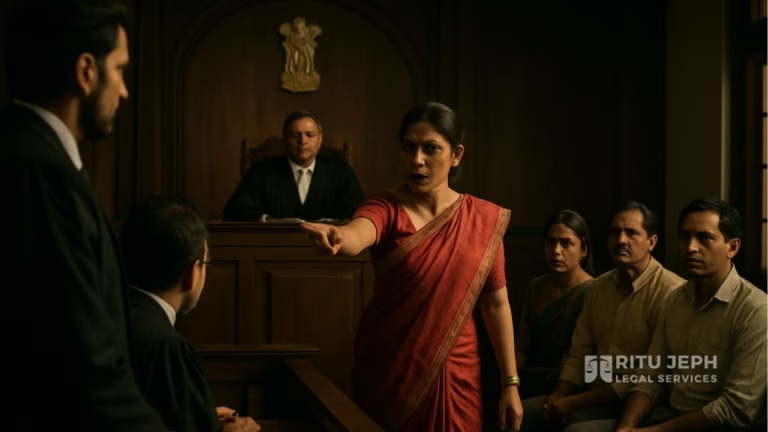Book Appointment Now

How to Handle Child Custody Disputes and What the Courts Consider
Learn how to handle child custody disputes in India and understand what courts consider under recent laws. Expert guidance for parents navigating custody battles.
Child custody disputes are among the most emotionally draining experiences for families. In India, these disputes often arise during divorce or separation, where parents cannot agree on who should care for their child. The Indian legal system prioritizes the child’s welfare above all else, and recent legal developments have further reinforced this principle. If you’re dealing with a child custody dispute, understanding the legal framework and recent changes can help you navigate the process more effectively.
Understanding Child Custody Disputes in India
Child custody disputes occur when parents cannot reach an agreement about who should have physical custody (where the child lives) or legal custody (who makes decisions about the child’s upbringing). In India, custody matters are primarily governed by the Guardians and Wards Act, 1890, along with personal laws like the Hindu Minority and Guardianship Act, 1956, and provisions under the Protection of Women from Domestic Violence Act, 2005.
Recent legal reforms have emphasized gender-neutral custody decisions and the child’s best interests, moving away from traditional biases that favored mothers.
ALSO READ: Marital Rape in India: The Crime That Still Isn’t a Crime
What Do Indian Courts Consider in Child Custody Disputes?
Indian courts follow the principle of the “welfare of the child” as the paramount consideration. Here are the key factors courts evaluate:
- Child’s Best Interests: The primary focus is on the child’s physical, emotional, and educational well-being. Courts assess which parent can provide a stable, loving, and secure environment.
- Child’s Preference: If the child is mature enough (usually above 9 years), the court may consider their preference, provided it aligns with their best interests.
- Parental Capability: Courts examine each parent’s ability to care for the child, including financial stability, mental health, and lifestyle.
- Parent-Child Relationship: The bond between the child and each parent is crucial. Courts favor the parent who has been more actively involved in the child’s upbringing.
- Stability and Continuity: Maintaining the child’s current routine, school, and social environment is prioritized to minimize disruption.
- No Gender Bias: Recent judgments have reinforced that custody decisions are based on merit, not gender. Fathers can now secure custody if they demonstrate their ability to care for the child effectively.
Recent Legal Changes in Child Custody Laws
- Gender-Neutral Approach: Courts are increasingly adopting a gender-neutral stance, ensuring that custody decisions are based on the child’s welfare rather than traditional biases.
- Shared Parenting: There is a growing emphasis on shared parenting, where both parents are encouraged to participate actively in the child’s life, even after separation.
- Virtual Visitation: With the rise of technology, courts are now considering virtual visitation rights, allowing non-custodial parents to maintain contact with their children through video calls and other digital means.
- Domestic Violence Considerations: Under the Protection of Women from Domestic Violence Act, 2005, if one parent has a history of domestic abuse, it can significantly impact custody decisions.
ALSO READ: Why India’s Fertility Rate Drop Could Reshape the Nation’s Destiny
Tips for Handling Child Custody Disputes in India
- Prioritize the Child’s Needs: Focus on what is best for your child, not personal grievances. Courts look favorably on parents who demonstrate a child-centric approach.
- Seek Mediation: Before approaching the court, consider mediation. Family courts in India often encourage mediation to help parents reach an amicable agreement.
- Document Your Involvement: Keep records of your participation in your child’s life, such as school activities, medical appointments, and daily care. This can strengthen your case in court.
- Avoid Conflict in Front of the Child: Courts disapprove of parents who involve children in disputes. Maintain a respectful and cooperative attitude toward the other parent.
- Hire an Experienced Lawyer: A family lawyer with expertise in child custody disputes can guide you through the legal process and ensure your rights are protected.
Types of Custody Arrangements in India
Indian courts may award different types of custody based on the circumstances:
- Sole Custody: One parent is granted full physical and legal custody, while the other may receive visitation rights.
- Joint Custody: Both parents share physical and legal custody, allowing the child to spend time with both.
- Shared Custody: The child’s time is divided more equally between parents, ensuring both remain actively involved.
Child custody disputes are challenging, but understanding the legal framework and recent changes can help you approach the situation more effectively. Indian courts prioritize the child’s welfare, and recent reforms have made the process more equitable and child-centric. If you’re facing a custody battle, seek professional legal advice and strive to maintain a cooperative approach with the other parent.
By staying informed and focusing on your child’s best interests, you can navigate child custody disputes with confidence and work toward a resolution that benefits your child the most.



